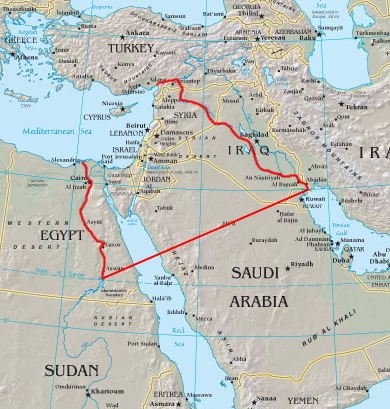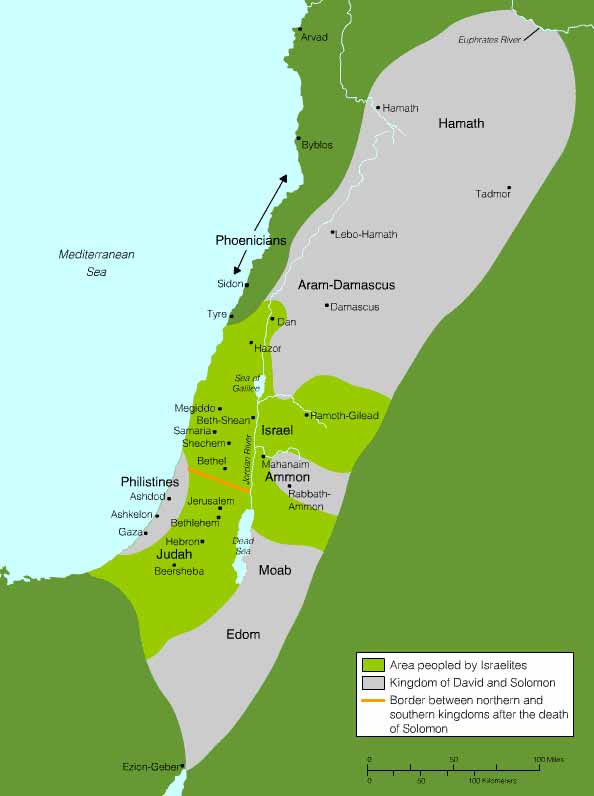9 After they had eaten and drunk in Shiloh, Hannah rose. Now Eli the priest was sitting on the seat beside the doorpost of the temple of the Lord. 10 She was deeply distressed and prayed to the Lord and wept bitterly. 11 And she vowed a vow and said, “O Lord of hosts, if you will indeed look on the affliction of your servant and remember me and not forget your servant, but will give to your servant a son, then I will give him to the Lord all the days of his life, and no razor shall touch his head.”
12 As she continued praying before the Lord, Eli observed her mouth. 13 Hannah was speaking in her heart; only her lips moved, and her voice was not heard. Therefore Eli took her to be a drunken woman. 14 And Eli said to her, “How long will you go on being drunk? Put your wine away from you.” 15 But Hannah answered, “No, my lord, I am a woman troubled in spirit. I have drunk neither wine nor strong drink, but I have been pouring out my soul before the Lord. 16 Do not regard your servant as a worthless woman, for all along I have been speaking out of my great anxiety and vexation.” 17 Then Eli answered, “Go in peace, and the God of Israel grant your petition that you have made to him.” 18 And she said, “Let your servant find favor in your eyes.” Then the woman went her way and ate, and her face was no longer sad.
19 They rose early in the morning and worshiped before the Lord; then they went back to their house at Ramah. And Elkanah knew Hannah his wife, and the Lord remembered her. 20 And in due time Hannah conceived and bore a son, and she called his name Samuel, for she said, “I have asked for him from the Lord.” – 1 Samuel 1:9-20 ESV
The Book of Judges paints a bleak picture of the spiritual state of Israel. It portrays a cycle of sin, judgment, repentance, and rescue that repeats itself relentlessly during the nation’s early days living within the land of promise. After the death of Joshua, the man who had led them in their conquest of Canaan, the Israelites displayed a fickle and faithless relationship with Yahweh. This great leader, appointed by Yahweh Himself, had left them with a somber charge.
“Now therefore fear the Lord and serve him in sincerity and in faithfulness. Put away the gods that your fathers served beyond the River and in Egypt, and serve the Lord. And if it is evil in your eyes to serve the Lord, choose this day whom you will serve, whether the gods your fathers served in the region beyond the River, or the gods of the Amorites in whose land you dwell. But as for me and my house, we will serve the Lord.” – Joshua 24:14-15 ESV
Encouraged by Joshua’s impassioned plea, the people vowed to remain faithful to Yahweh.
“Far be it from us that we should forsake the Lord to serve other gods…Therefore we also will serve the Lord, for he is our God.” – Joshua 24:17, 18 ESV
Yet, Joshua knew his people well and responded with a less-than-flattering assessment of their ability to keep their commitment.
“You are not able to serve the Lord, for he is a holy God. He is a jealous God; he will not forgive your transgressions or your sins.” – Joshua 24:19 ESV
Joshua’s statement proved to be prophetic. In two separate places in the Book of Judges, the text provides the following assessment of the people of Israel.
In those days there was no king in Israel. Everyone did what was right in his own eyes. – Judges 17:6 ESV
It was in this difficult and decadent environment that Hannah had been born. Yet, she is portrayed as a godly woman who still worships the God of her forefathers. Despite her barrenness and heavy heart, she has not abandoned her God. Even amid her pain and sorrow, she continues to believe in His presence and power. Verse 9 portrays this disconsolate woman standing before the gate of the Tabernacle, bearing her heart to Yahweh.
She has reached the end of her rope. The shame and social stigma associated with her ailment have left her in a desperate state, and she makes a vow to Yahweh.
“O Lord of Heaven’s Armies, if you will look upon my sorrow and answer my prayer and give me a son, then I will give him back to you. He will be yours for his entire lifetime, and as a sign that he has been dedicated to the Lord, his hair will never be cut.” – 1 Samuel 1:11 NLT
Hannah is not making a rash or poorly thought-out vow; she has had plenty of time to consider her situation and decided that this agreement with the Almighty is her only option. In exchange for the ability to bear her husband a son, Hannah is willing to dedicate the child to the service of Yahweh.
Hannah prays to God, pouring out her soul (1 Samuel 1:15) in an impassioned plea that demonstrates the desperation she feels. If God will only hear and answer her cry, she will give the child back to God as an expression of her gratitude for His gracious gift. if And the text tells us that God heard and answered her prayer, providing Hannah with the desire of her heart: A son.
This child, Samuel, would grow up to be Israel’s last judge and one of the few decent judges they ever had. His birth came at a time when Israel was in dire need of godly leadership, as will be demonstrated in the following verses. God has witnessed the moral situation in Israel. He has heard the cries of this beleaguered and belittled woman and He steps in, at just the right time.
But another character in the story has a different reaction to Hannah’s suffering and pain, mistaking her anguish for drunkenness. Eli, the priest, is sitting at the Tabernacle’s gate and witnesses Hannah’s silent prayer as she pours out her heart to the Lord. From his vantage point, he can see her lips move but hears no sound. This leads him to draw the rather strange conclusion that she must be filled with alcohol rather than pain. Put off by what he believes to be her blatant display of public intoxication, he confronts her.
“Must you come here drunk?” he demanded. “Throw away your wine!” – 1 Samuel 1:14 NLT
This self-righteous religious leader has a lot of gall. He takes no opportunity to discern her circumstances but, instead, he accuses her of coming to the Tabernacle in a state of inebriation. Appalled by the priest’s assertion, Hannah defends her integrity and explains her strange behavior.
“Oh no, sir!” she replied. “I haven’t been drinking wine or anything stronger. But I am very discouraged, and I was pouring out my heart to the Lord. Don’t think I am a wicked woman! For I have been praying out of great anguish and sorrow.” – 1 Samuel 1:15-16 NLT
Almost as if to gloss over his social faux pas, Eli encourages Hannah to go on her way and assures her that God will answer her prayer. He doesn’t even bother to discern the nature of her problem. But based on Eli’s status as a priest of God, Hannah took his words to heart and assumed he had received a word from God. Yet there is nothing in the text that indicates that Eli’s words were God-ordained. It does not appear that Eli had any idea his words were prophetic in nature.
Yet, God had heard Hannah’s prayer and sovereignly orchestrated Eli’s statement. He was at work behind the scenes preparing the way for a miracle. He was going to take this obscure woman named Hannah and use her to bring about His redemptive plan for the people of Israel. He will reveal His strength through her weakness. He will use her moment of need to show His one-of-a-kind ability to intervene and do the impossible.
Hannah walked away from her encounter with Eli with a bounce in her step. She took his words to heart and trusted that God had heard and would surely act. Little did she know that God was going to do far more than she could have ever imagined; He was going to meet the greater need sof the people of Israel.
God was in control and was working His divine plan to perfection, orchestrating events and individuals in such a way that His will would be accomplished. Like every other book in the Old Testament, the book of 1 Samuel provides a glimpse into the character of God. It is a book of theology, not just history. More than just a collection of isolated and independent stories, it is a revelation of who God is and how He interacts with His chosen people.
English Standard Version (ESV) The Holy Bible, English Standard Version. ESV® Permanent Text Edition® (2016). Copyright © 2001 by Crossway Bibles, a publishing ministry of Good News Publishers.
New Living Translation (NLT) Holy Bible, New Living Translation, copyright © 1996, 2004, 2015 by Tyndale House Foundation. Used by permission of Tyndale House Publishers Inc., Carol Stream, Illinois 60188. All rights reserved.




